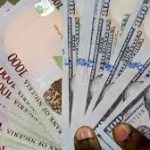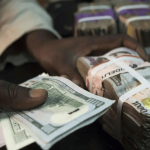The Central Bank of Nigeria (CBN) has been urged by the World Bank to avoid frequent interventions in the foreign exchange (FX) market through ad-hoc forex auctions. Instead, the global institution recommends a structured, transparent approach to reinforce the naira’s stability and encourage exchange rate flexibility, according to the recent Nigeria Development Update.
On August 26, 2024, the CBN auctioned $876.26 million directly to end users in a retail Dutch auction, moving away from its previous reliance on Bureau De Change operators. Under Governor Yemi Cardoso, this auction represents one of the largest FX interventions aimed at enhancing liquidity, alleviating demand pressures, and stabilizing the naira.
The World Bank, however, suggests that a more market-oriented approach would benefit Nigeria’s FX market. “Maintaining a unified, market-reflective exchange rate while deepening the FX market is critical,” the report advises. It proposes measures including facilitating formal remittance inflows, enabling international oil companies to prioritize official market sales, and limiting impromptu FX auctions. This strategy, the World Bank states, would anchor expectations to economic fundamentals rather than perceived rates.
In addition, the World Bank emphasizes the importance of building Nigeria’s foreign reserves to provide a reliable valuation of the naira, fostering a stable environment conducive to both domestic and international trade. A single market-based exchange rate, the bank argues, could bolster fiscal revenues, attract foreign investment, and support inclusive economic growth.
Despite these recommendations, Wale Edun, Nigeria’s Minister of Finance, recently clarified that the government is selective in adopting international agencies’ advice. Speaking at the IMF/World Bank meetings in Washington, D.C., Edun acknowledged the value of their insights but underscored Nigeria’s autonomy in policy decisions, referencing the oversubscription of a $500 million domestic bond as a sign of investor confidence.
The Nigeria Development Update further reveals concerns within the Nigerian banking sector, where non-performing loans (NPLs) now constitute 5.1% of total loans, slightly above the 5% prudential benchmark. Rising inflation, the naira’s depreciation, and this NPL increase have weakened capital buffers across Nigerian banks. Capital adequacy ratios dropped from 14.2% in Q1 2023 to 11.1% in Q1 2024, indicating higher exposure to potential defaults.
Additionally, the CBN’s recent open market operations (OMOs), amounting to over N6.6 trillion in the first eight months of 2024—a 30% increase compared to the previous three years combined—have tightened liquidity, attracted FX inflows, and supported the bank’s monetary policy stance. With these strategic OMOs, market rates are now aligning more closely with the Monetary Policy Rate (MPR), reinforcing Nigeria’s FX reforms.
The CBN’s approach to FX stability and banking resilience will likely shape Nigeria’s broader economic outlook, as stakeholders watch to see if the central bank heeds the World Bank’s call for a more transparent and flexible FX intervention framework.










